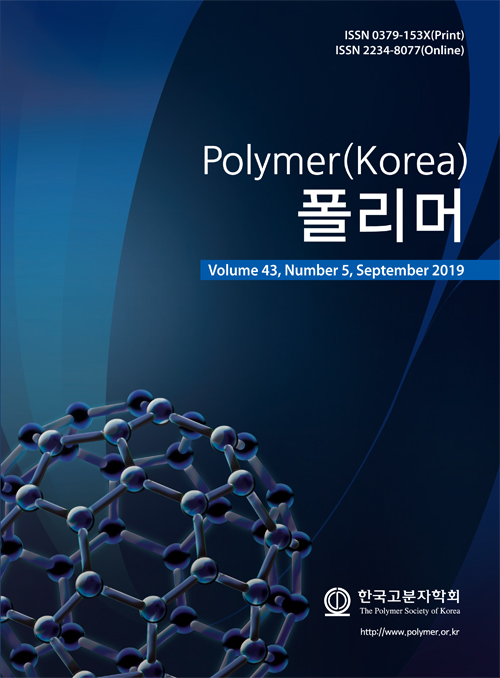- Adsorption Kinetics Under Dry and Wet Conditions of TEDA Doped ACF for CH3I Adsorption
Joo Young You, Sang Sun Choi, Woo Jeong Lee, Joon Hyuk Lee*, and Soon Hong Lee†

Department of Environmental Engineering, Anyang University, Anyang 14028, Korea
*Department of Chemical Engineering, Hanyang University, Seoul 04763, Korea
- TEDA 첨착 활성탄소섬유에 기반한 건조 및 습윤상태에서의 방사성 아이오딘 흡착특성연구
안양대학교 환경공학과, *한양대학교 화학공학과
: Radioactive isotopes of iodine has been reported as
deleterious for living organisms. With the rapid development of nuclear
industry and the prevalence around the globe, there is an urgent need to
control the possibility of iodine-release. Within the paper, we observed the
adsorption experiments of triethylenediamine doped activated carbon fiber
(T-ACF) onto CH3I. T-ACF revealed 11.97% decrease in specific
surface area when compared to ACF, but showed transition of C=C or C-H bond to
C-N bond. In terms of the maximum adsorption capacity (qmax),
T-ACF was found to have 30.55 and 5.56% more qmax when
compared to ACF under dry and wet conditions, respectively. Given that,
post-introduced amine groups after the triethylenediamine (TEDA) treatment composed a preferable environment on
the carbonaceous surface for CH3I adsorption. Lastly, adsorption
experiments suggested that all the samples favored the Langmuir model in both
dry and wet conditions
원자력 시설에서 자연환경으로 유출될 수 있는 방사성 물질
중 아이오딘은 인체에의 위해도가 널리 보고된 바 있으므로 이에 대한 안전한 저감연구가 필요하다. 본
연구에서는 기존 흡착제 대비 높은 비표면적 및 흡착 용이성으로 각광받고 있는 활성탄소섬유(ACF)를
대상으로 triethylenediamine(TEDA) 첨착을 하고 그에 따른 기기분석 및 흡착실험을
진행하였다. TEDA를 첨착한 활성탄소섬유(T-ACF)는
일반 ACF 대비 11.97%의 비표면적 감소를 나타내었으나, C=C 또는 C-H의 표면 관능기가 C-N으로 치환됨 또한 확인되었다. 이러한 amine 그룹은 아이오딘의 흡착에 유리하게 작용될 수 있으며, 흡착시험
결과 역시 T-ACF가 일반 ACF 대비 건조상태 및 습윤상태에서
각각 30.55 및 5.56% 증가함을 확인하였다. 마지막으로, 흡착등온식에서는 모든 샘플들이 건조상태 및 습윤상태에서 Freundlich 식보다는 Langmuir 식에 더 적합함을 확인할
수 있었다
Keywords: activated carbon fiber, radioactive materials, methyl iodide, adsorption, surface functional groups
- Polymer(Korea) 폴리머
- Frequency : Bimonthly(odd)
ISSN 0379-153X(Print)
ISSN 2234-8077(Online)
Abbr. Polym. Korea - 2023 Impact Factor : 0.4
- Indexed in SCIE
 This Article
This Article
-
2019; 43(6): 846-851
Published online Nov 25, 2019
- 10.7317/pk.2019.43.6.846
- Received on Jun 18, 2019
- Revised on Aug 16, 2019
- Accepted on Aug 16, 2019
 Correspondence to
Correspondence to
- Soon Hong Lee
-
Department of Environmental Engineering, Anyang University, Anyang 14028, Korea
- E-mail: leesh@anyang.ac.kr









 Copyright(c) The Polymer Society of Korea. All right reserved.
Copyright(c) The Polymer Society of Korea. All right reserved.